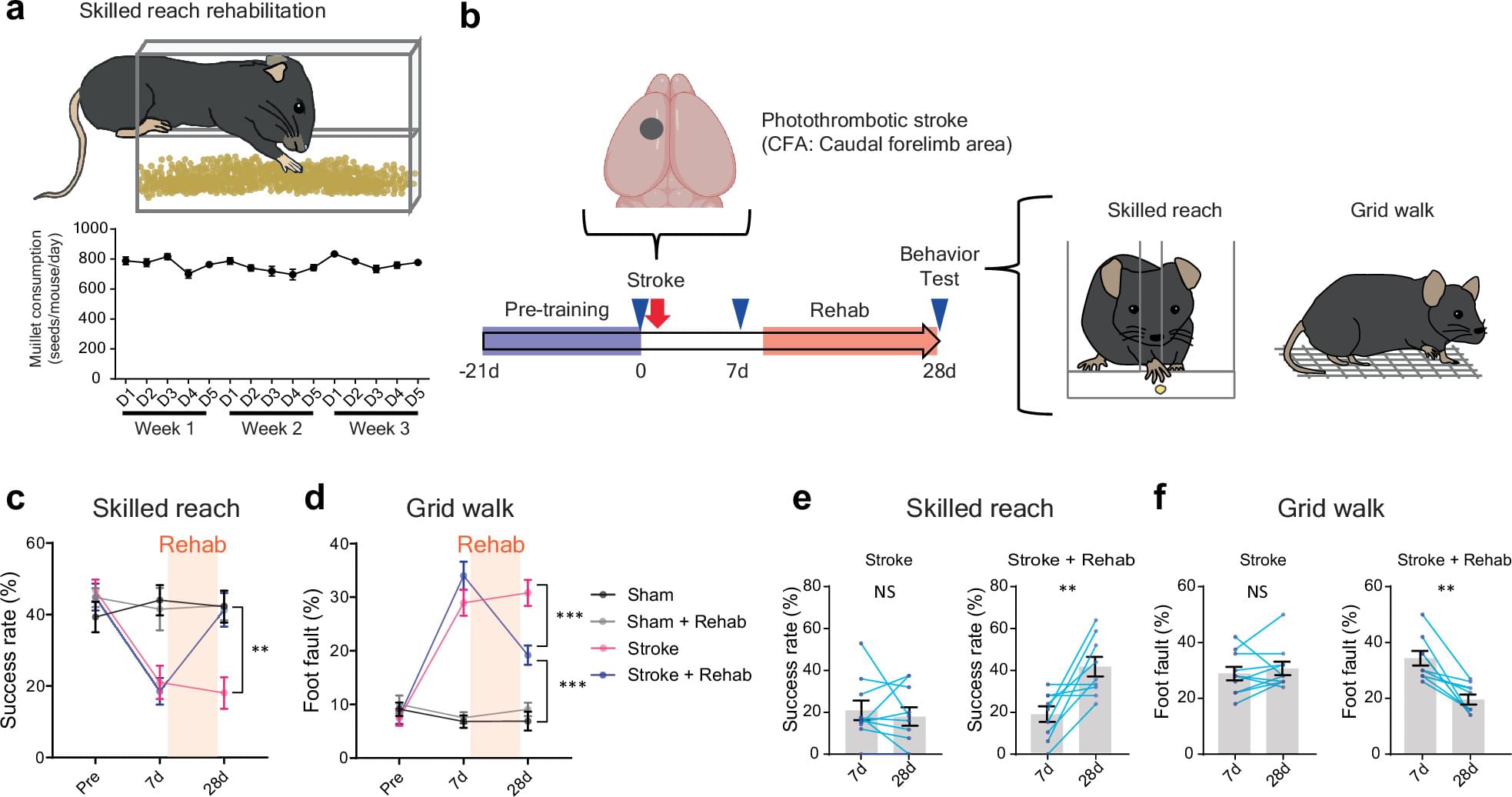UCLA researchers have made a significant breakthrough in stroke rehabilitation by developing a drug, DDL-920, that replicates the effects of physical therapy in mice. This discovery could pave the way for new treatments that enhance recovery for stroke patients.
Key Findings:
- Understanding Stroke-Induced Brain Disconnection: The study revealed that strokes can disrupt brain connections far from the initial damage site, particularly affecting parvalbumin neurons. These neurons are crucial for generating gamma oscillations—brain rhythms essential for coordinated movements.
- Role of Physical Rehabilitation: Physical therapy was found to restore gamma oscillations and repair connections in parvalbumin neurons, leading to improved motor functions in both mice and human subjects.
- Development of DDL-920: Researchers identified two compounds that could stimulate parvalbumin neurons. One of these, DDL-920, developed in Dr. Varghese John’s lab, successfully restored movement control in mice by mimicking the effects of physical rehabilitation.
Potential Implications:
- Advancement in Stroke Treatment: If proven safe and effective in humans, DDL-920 could offer a pharmacological alternative to physical therapy, especially beneficial for patients unable to undergo intensive rehabilitation.
- Shift Towards Molecular Medicine: This research signifies a move from traditional physical rehabilitation to molecular approaches, potentially transforming stroke recovery methods.
- Broader Neurological Applications: The mechanism of restoring gamma oscillations might be applicable to other neurological conditions involving disrupted neural connectivity.
Further studies are necessary to assess the safety and efficacy of DDL-920 in humans before clinical application.
Parvalbumin interneurons regulaterehabilitation-induced functional recoveryafter stroke and identify arehabilitation drug.
